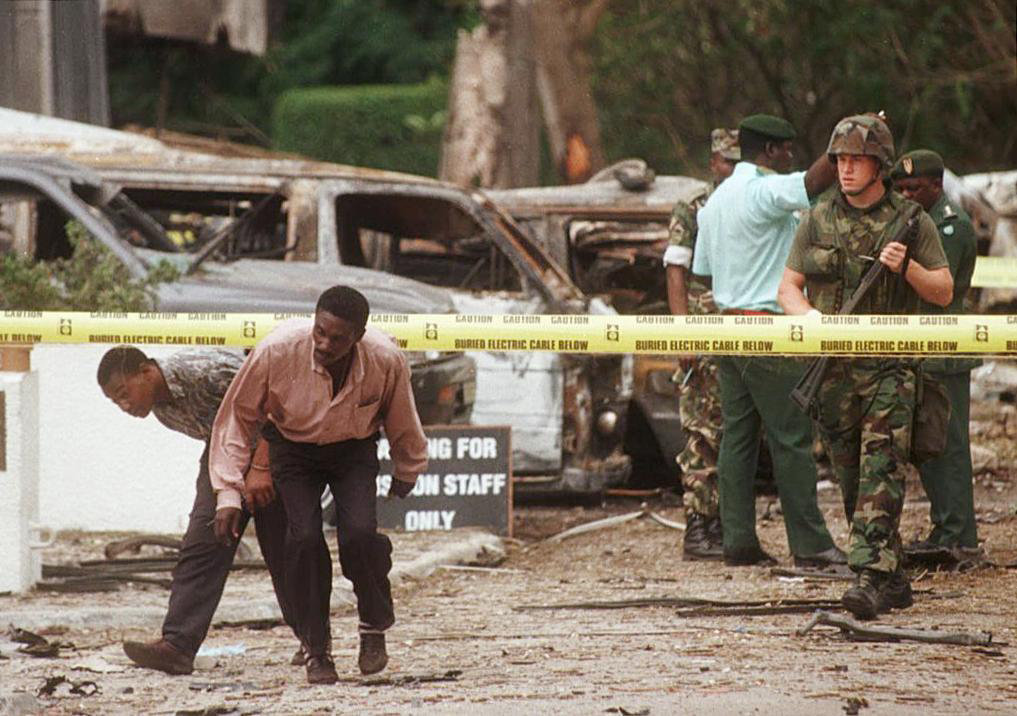LONDON/RIYADH: Al-Qaeda’s leadership is in crisis, analysts told Arab News on Saturday, after it emerged that the terrorist group’s second-in-command had been shot dead in Iran.
News of the death of Abdullah Ahmed Abdullah, also known as Abu Muhammad Al-Masri, is a blow to Al-Qaeda, the terror network that orchestrated the Sept. 11, 2001, attacks in the US, and comes amid rumors in the Middle East about the fate of the group’s leader, Ayman Al-Zawahiri.
Al-Masri was gunned down in a Tehran alley on Aug. 7, the anniversary of the 1998 bombings of the US embassies in Nairobi, Kenya, and Dar es Salaam, Tanzania. He was widely believed to have participated in the planning of those attacks and was wanted on terrorism charges by the FBI.
Al-Masri was in a car with his daughter in the prosperous Tehran suburb of Pasdaran when they were both shot dead by two Israeli operatives on a motorcycle, the New York Times earlier reported.
Al-Qaeda has not announced his death, Iranian officials have denied it and no government has publicly claimed responsibility.
But an AP report on Sunday said the death of Al-Masri was confirmed by four current and former US officials, who said the US and Israel worked together to track and kill Al-Qaeda's No. 2 man.
It was a bold intelligence operation by the two allied nations that came as the Trump administration was ramping up pressure on Tehran.

A US soldier is seen standing guard in front of the US Embassy in Dar es Salaam, Tanzania, the site of the August 7, 1998, bomb blast. (AFP file photo)
The US provided intelligence to the Israelis on where they could find Al-Masri and the alias he was using at the time, while Israeli agents carried out the killing, according to two of the officials. The two other officials confirmed Al-Masri’s killing but could not provide specific details.
Al-Masri was seen as a likely successor to Al-Zawahiri, and the death of both men would be a crushing blow to the terrorist group.
“The killing of Abu Mohammed Al-Masri … brings back the question on the leadership of Al-Qaeda, which increased the crisis of Al-Qaeda in the event of the departure of Al-Zawahiri,” extremism and terrorism expert Dr. Hani Nasira told Arab News.
Masri had been in Iran’s “custody” since 2003 but had been living freely in Tehran since 2015.
US counterterrorism officials believe Iran may have let him live there to conduct operations against US targets.
His daughter, who also died in the shooting, was married to 9/11 mastermind Osama bin Laden’s son Hamza, who was killed in a US air strike in 2017.
The news of Al-Masri’s death comes weeks after the killing of two other senior Al-Qaeda leaders by local security forces in Afghanistan.
Despite the crisis in its leadership, however, other analysts told Arab News that Al-Qaeda should not be written off.
“Although Al-Qaeda has lost key leaders in Pakistan, Afghanistan and in Iran, there are key people in Syria, Yemen, and in West Africa ready to provide leadership,” said Dr. Arie Kruglanski, an expert on the psychology of terrorism and political activism.
“Al-Qaeda core is a small group of less than a 100 members. However, it draws its strength by sharing its ideology with threat groups worldwide.
“The US will continue to hunt Al-Qaeda, especially its senior leadership that masterminded 9/11.”















